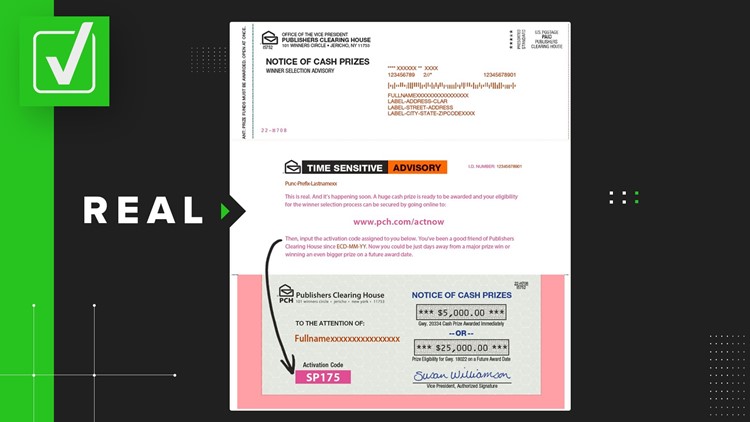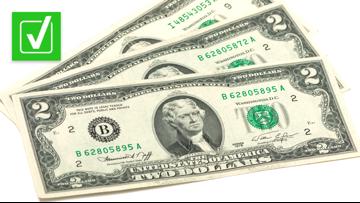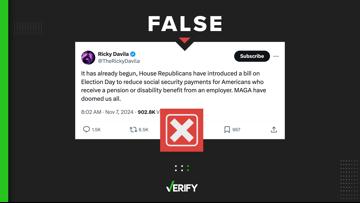Who wouldn’t want to win thousands or even millions of dollars in cash? That dream has kept Publishers Clearing House’s sweepstakes popular for decades.
But it has also made PCH a popular target for scammers trying to trick victims. Several readers have recently asked VERIFY if they were receiving legitimate letters with an activation code from PCH in the mail.
THE QUESTION
Does Publishers Clearing House mail out letters with activation codes on them?
THE SOURCES
THE ANSWER
Yes, Publishers Clearing House does mail out letters with activation codes. The postcards contain codes to enter sweepstakes, not to collect money you’ve already won.
WHAT WE FOUND
A Publishers Clearing House spokesperson told VERIFY that PCH occasionally sends out promotional letters with a code to its website where people can enter to win a cash prize.
The spokesperson attached a sample copy of the letters PCH most recently mailed out. It includes a five-character activation code to be entered onto a PCH URL.

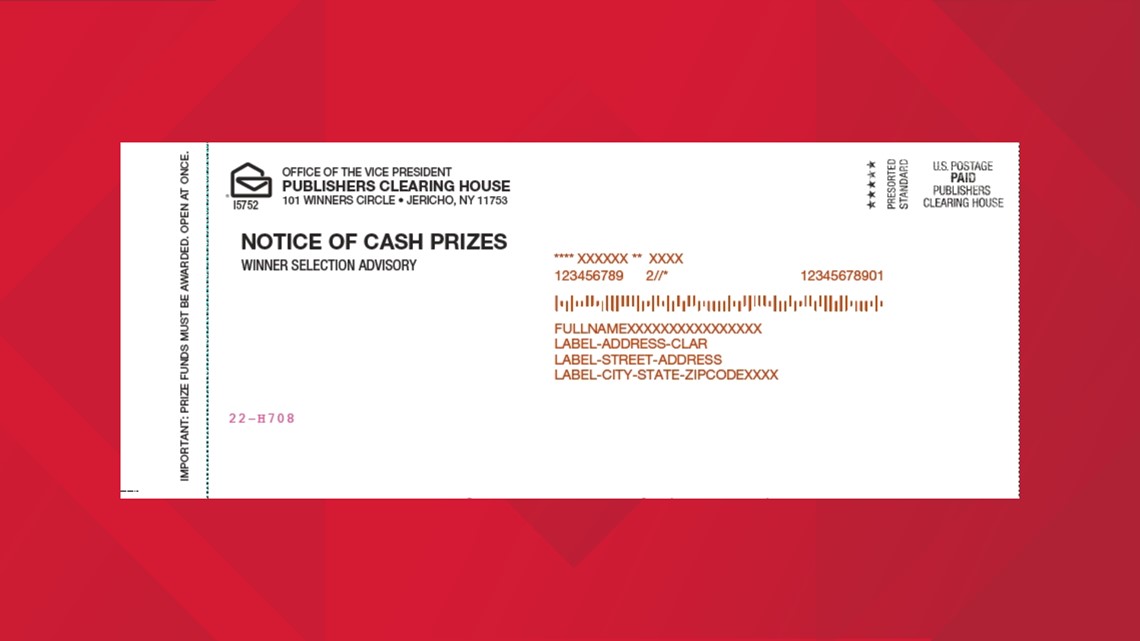

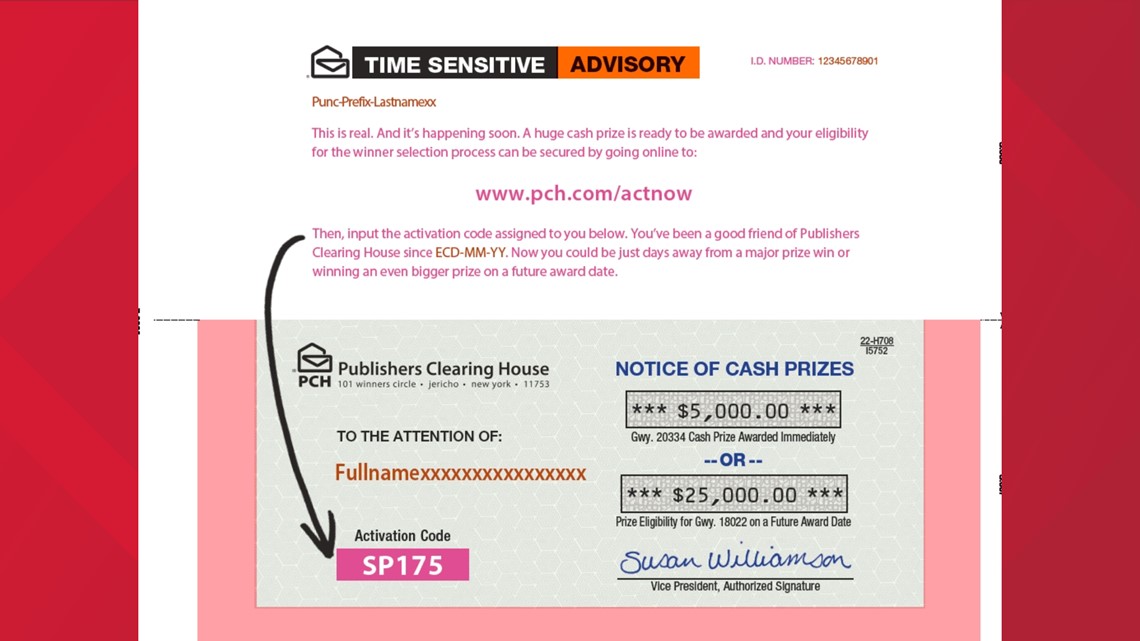
These letters are not new. PCH has written 37 blog posts on its website to announce it was mailing the activation code letters . Each version of this postcard typically looks similar, and it always tells people to go to a link, either www.pch.com/actnow or www.pch.com/urgent, to enter the five-character code included on the card. PCH has also posted about these letters on its Facebook page in the past.
PCH’s letters do not tell consumers to send PCH any money to receive their prizes, nor does it say they’ve already won a prize. Consumers who receive a real PCH letter still have to enter the contest locked behind the activation code to be eligible for any prizes. No PCH activation code letter has ever sent consumers to any website other than PCH’s own site.
“If it is not free, it is not from the real Publishers Clearing House,” the spokesperson said. “If a card, letter, email or contact claims to be from PCH, but is requiring you to send any money to claim a prize DO NOT RESPOND. At PCH, the winning is always free!”
That’s because it’s illegal to ask people to pay or buy something to enter a sweepstakes, or to increase your odds of winning a prize, the Federal Trade Commission (FTC) says. So if you’re asked to pay money at any point, it’s a scam.
The FTC also says there’s no reason to ever give your bank account or credit card number to claim any prize or sweepstakes. So if you fill in an activation code, and then see you need to enter sensitive financial information, close the window. That’s a scam.
“PCH will only ask for information to verify your eligibility and to notify you if you are a winner: date of birth, name, address, and email,” the United States Postal Inspection Service says. “No other information is needed.”
The PCH spokesperson told VERIFY that consumers can always reach out to PCH itself to confirm they’ve received a real sweepstakes promotion from PCH.
“If consumers have any questions about the veracity of a sweepstakes promotion they have received, they can contact PCH to confirm by visiting us online at https://info.pch.com/category/customer-service/, or contact our toll free line at (800)-645-9242.”

